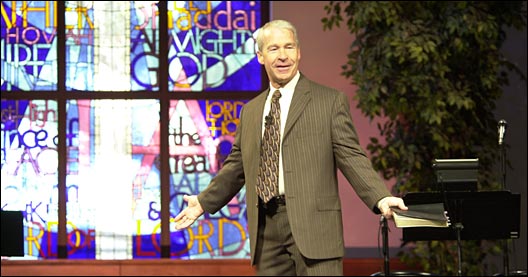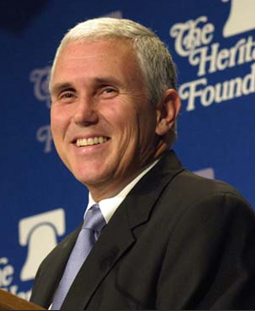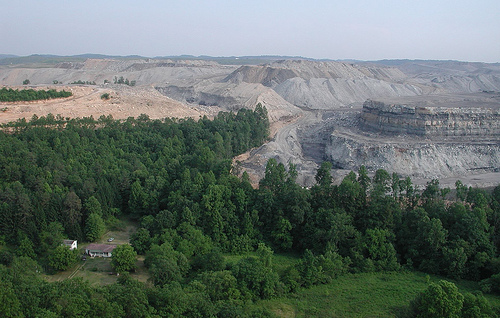Climate Politics
All Stories
-
New religious coalition seeks climate ‘redemption’ via carbon plan
Joel Hunter, important pastor.Dr. Joel Hunter, reputedly one of President Obama’s five favorit-est pastors, might have just gotten even more favorit-er. The Florida megachurch pastor stars in a blitz of new ads on Christian radio stations intended to raise support for a climate bill like the one under consideration in the U.S. House. Hunter, a […]
-
House climate bill could get fast-tracked
The sponsors of the House climate and energy bill were supposed to release the final text of their legislation and open it up for debate this week, but the process has stalled out. Reps. Henry Waxman (D-Calif.) and Ed Markey (D-Mass.) have been trying to come to agreement with moderates on the Energy and Environment […]
-
Republican incoherence on climate change
There’s been lots of bashing of Rep. Mike Pence (R-Ind.) here on Grist lately — see Kate here, Brad here — and with good reason. The guy has a good chance of being the next Republican House leader and he is, to put it bluntly, dumb as a box of hair. Guy like this, it’s […]
-
Pence repeats $3000 lie about green economy, accuses MIT economist of playing politics
This week, Rep. Mike Pence (R-IN) not only lied twice on national television about the cost of a green economy, but also accused the MIT economist who has challenged Pence’s distortion of his work of playing politics. Since March, the GOP has repeated a $3000 lie about about cap-and-trade clean energy legislation, claiming that the […]
-
Memo to Hansen 2: Why is the country’s top anti-science blog reprinting your stuff?
I got a lot of responses to my first Memo to James Hansen on his ill-conceived and unhelpful opposition to Waxman-Markey. Needless to say, it gives me no joy to criticize the nation’s top climate scientist, a man who inspired me to write my book and this blog, a man whose work is reprinted more […]
-
Urgent letter to EPA and Interior Dept. from coalfield residents
As three million pounds of ammonium nitrate/fuel oil explosives continue to rip through the lush green Appalachian mountains and historic mountain communities every day, coalfield residents from West Virginia issued an extraordinary letter on Wednesday asking EPA Administrator Lisa Jackson and Department of Interior Secretary Ken Salazar to assert primacy over the negligent West Virginia […]
-
Is China ready to act on climate? Part 2
Part 1 looked at the “Rise of the Green Dragon?“ Yet, even as China aggressively pursues world leadership in key clean technologies like solar and wind, it has also announced plans to keep expanding coal use at a pace so rapacious it would single-handedly finish off the climate no matter what we and the other […]
-
Obama and Biden press House Dems for fast action on climate bill
The Washington Post reported today: President Obama and Vice President Biden urged a group of House Democrats at a White House meeting this morning to move forward with climate-change legislation that has become a subject of controversy among some Democrats and threatened to stall health-care reform. At the same time, E&E News PM (subs. req’d) […]
-
The EPA holds corn ethanol accountable … sort of
In February 2008, a group of researchers led by Tim Searchinger of Princeton’s Woodrow Wilson School published a paper (PDF) in Science Express called, “Use of U.S. Croplands for Biofuels Increases Greenhouse Gases Through Emissions from Land Use Change.” Their conclusion was startling: the government policy of supporting biofuel production, which had begun in the […]
-
U.S. pledges something or other on climate
Details aren’t in focus in this climate doc.Photo: circulating via FlickrToday U.S. negotiators promised “ambitious actions,” “robust targets,” and pretty much nada details in a proposal overdue to the UN Framework Convention on Climate Change. The paper suggests a structure for the international climate treaty to be hashed out in Copenhagen this December—something the UNFCC […]






